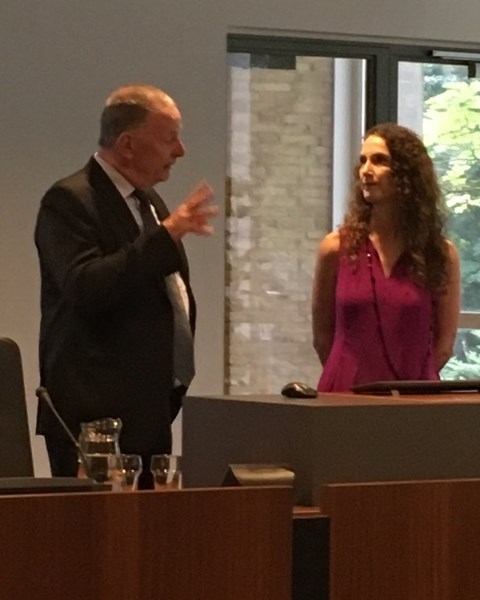Naomi B. Rather
DISSERTATION TITLE:
Collaboration Across Disciplines in a Private Practice Healthcare Setting
- In countries with multiple options for healthcare, it is common for people to seek the services of more than one healthcare provider.
- Those services are likely to be provided outside of a hospital setting, where there are fewer opportunities for collaboration.
- Patients may seek additional help in the form of herbs, tinctures, vitamins and other non-prescribed medicines, which can impact the safety or efficacy of prescribed medicines.
- These patients are often quite vulnerable, perhaps suffering from:
- Chronic pain that’s difficult to treat.
- Childhood maltreatment/abuse/neglect.
- Loneliness, lack of support.
- Emotional or physical disabilities.
- Addictions
- Healthcare providers in private practice are paid only for the time they see patients—not for collaborating.
- They may have few or short interactions with patients.
- They are often isolated from practitioners of different disciplines.
- They may have limited experience with collaboration across disciplines.
- A new idea about how providers could talk about cases was introduced to a group of 22 healthcare practitioners who shared office space.
- A small subgroup of practitioners chose to meet monthly for the next 18 months.
- The participants developed a connection that allowed them to both support and challenge each other.
- New ideas about healthcare emerged in the process, benefiting patients and providers.
- Collaboration across disciplines seemed to be linked to valuing multiple perspectives, outside one’s own discipline.
- An ability to engage in dialogue that is open and curious and mutually respectful, without any pre-conceived agendas.
- A relational connection between collaborators that reflects the above, and provides sufficient safety to generate new ideas.
- Suggestions for others who wish to collaborate across disciplines in healthcare include patients requesting that their various healthcare providers engage in collaborative dialogue about their care.
- Professional organizations can recommend collaboration across disciplines as part of guidelines for ethical care.
- Medical and Allied Healthcare training programs can instill and foster these values during training, through Interprofessional Education.
- Technology can be utilized to foster collaboration across disciplines, through shared medical records or notes.



